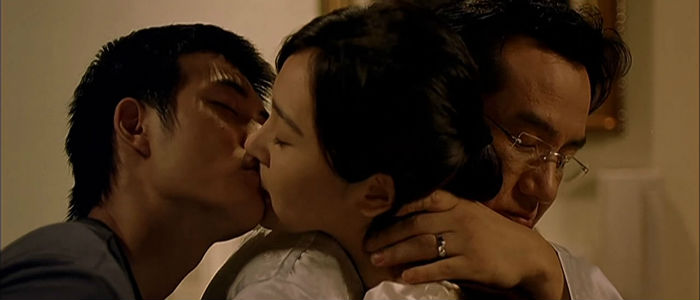(Welcome to The Best Movies You’ve Never Seen, a series that takes a look at slightly more obscure, under-the-radar, or simply under-appreciated movies. This week we celebrate Bong Joon Ho’s big win at the Academy Awards with his masterpiece ‘Parasite’ by looking back at some lesser known gems from South Korea.)
History was made recently when a non-English language film won Best Picture at the Oscars for the very first time. Parasite absolutely deserves the honor, but even better, the win is moving people toward seeking out other South Korean films too.
Danielle Ryan already put together a fantastic primer featuring some of South Korea’s best known and beloved modern classics, and every one of them are worth finding and watching immediately. I’d add to that list a few more popular gems including Memories of Murder (2003), The Chaser (2008), The Good the Bad the Weird (2008), The Housemaid (2010), The Villainess (2017), and Extreme Job (2019), and I’ll also toss in a few lower profile titles I’ve previously highlighted with this very column including The Foul King (2000), Sex Is Zero (2002), Save the Green Planet (2003), 3-Iron (2004), The President’s Last Bang (2005), Breathless (2008), Private Eye (2009), Confession of Murder (2012), The Thieves (2012), Hwayi: A Monster Boy (2013), Confidential Assignment (2017), A Taxi Driver (2017), and – look, I’ve recommended a lot of Korean films through this column.
And I’m about to suggest six more across varied genres, so please keep reading for a look at six of the best South Korean films you probably haven’t seen yet!
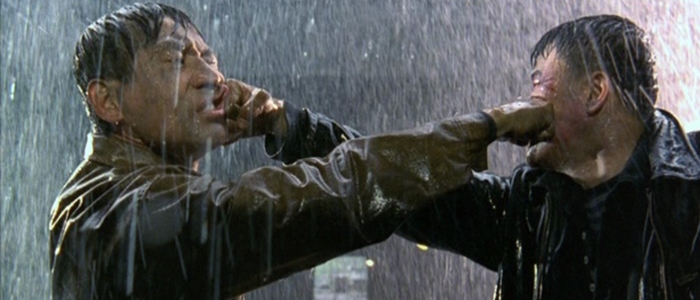
Nowhere to Hide (1999)
A slick killer walks the streets, and an obsessed detective equally prone to violence is determined to stop him. The policeman’s task is complicated by the criminal’s mastery of disguise, and with each new persona comes another body. Can the dogged detective get his man, or will he become another corpse in the street instead?
Writer/director Lee Myung-se’s sixth feature film was also his first action movie, and he pulled out all the stylistic stops to make it something memorable. Variable frame rates, shifts from black & white to color, freeze frames, distinctively fast-cut editing, and more work to make the film feel at times like a feature length music video. One sequence, an assassination on a some public stairs, is nothing less than a work of art and even features the Bee Gees’ “Holiday” playing over the setup and action.
The substance is light by contrast, but the simplicity of the plot is all it needs to create and explore this tale of two like-minded men on opposite sides of the moral and legal divide. The chase is broken down across long days, and both the cop (Park Joong-hoon) and killer (Ahn Sung-ki) see their characters shaped as much by their silences as by their outbursts. It builds to the expected climax between the two, but even there Lee makes choices that feel atypical for the genre. It’s not a film that will leave marveling at its fight choreography, but Nowhere to Hide is unforgettable all the same.
Nowhere to Hide is available to stream.
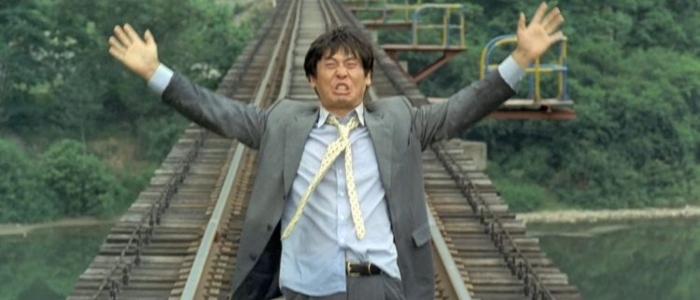
Peppermint Candy (1999)
Yong-ho is a man lost. His attempts to join a reunion hosted by old friends from school sees him grow disjointed and angry, and as he steps in front of an oncoming train he yells “I want to go back again!” He’s not going anywhere, but for viewers, what follows is a journey backwards through the life that led him to this very spot.
It’s easy to forget that South Korea’s government was a tyrannical “democracy” as recently as the 1980s, and the country’s struggle during the decade are just one stop along Yong-ho’s journey. Writer/director Lee Chang-dong has been a critical darling for years now with 2018’s Burning being a major step in increasing the general film-going public’s awareness of his work. All of his films, including favorites like Secret Sunshine (2007) and Poetry (2010) reveal him as an artist interested in the struggles of loners – people abandoned by those around them *and* people who choose to push others away – and he often ties in his country’s past and present to help drive his points home.
Lee’s film is structured like Gasper Noe’s Irreversible (2002) in that it opens with a shocking act and then moves backward to show piece by piece how its central character reached this point. We see Yong-ho as a successful businessman in a crumbling marriage before pushing further back to his role as a policeman in the 80s where he was forced to take part in the abuses and murder of unarmed protesters. Retreat some years more and we see him as an idealistic young man, making friends and making plans with other college kids looking forward to a life of possibilities ahead. It’s a tragedy unfolding in reverse, and it is breathtaking.
Peppermint Candy is available to stream.
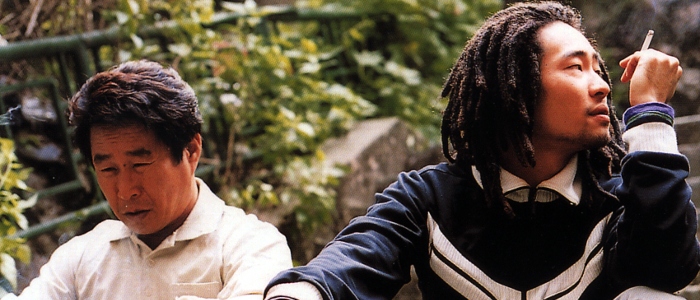
Crying Fist (2005)
Gang Tae-shik was once on top of the world having won a silver medal representing South Korea in boxing, but more than a decade later he’s tired, broke, separated from his wife and son, and resorting to offering strangers the chance to punch him for money. Yoo Sang-hwan is much younger but headed towards an equally miserable future as his criminal efforts land him in jail. Both men are drawn into the ring to repair their self-worth and to prove to the few who care that they’re not worth giving up on, but when they go glove to glove only one will be declared winner.
Co-writer/director Ryoo Seung-wan has made a name for himself crafting some solid action/thrillers in recent years including The Berlin File (2013) and Veteran (2015), but this sports drama, while still thrilling, is all about the heart. Like Gavin O’Connor’s under-appreciated Warrior (2011), Crying Fist belongs to an elite grouping of sports films pitting two equally deserving opponents against each other leaving viewers unable to pick a favorite and instead rooting for both underdogs equally. It’s a rare feeling for a sports film and leads to a third act filled with triumph and heartache aided by another terrific turn by Choi Min-sik as the aging boxer.
Rather than feel like an exquisitely choreographed film fight, the matches here see these two swinging with what looks like both precision and desperation. The final fight, the match-up that ultimately brings them together is brutal and tiring leaving viewers as exhausted as the characters on screen. This end fight is the first time the pair cross paths, and watching both put the entirety of their heart and soul into the match is ultimately uplifting and worthy of celebration.
Crying Fist is not currently available.
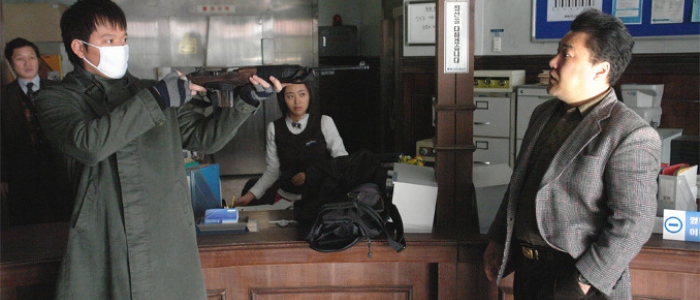
Going By the Book (2007)
Jeong Do-man is a cop who plays strictly by the rules despite the abuse he gets from fellow officers and supervisors. When a string of brazen robberies leaves the community shaken, the police chief devises a plan to restore faith in his department – he sets up a fake robbery to highlight the skills and effectiveness of his officers, and he tasks Do-man in the role of robber. Do-man takes the assignment seriously, though, and quickly shows that half-assed police work is no match for a man with a plan.
This absolute gem of an action/comedy is like a less sweaty Dog Day Afternoon (1975), and it moves from fantastic premise through pitch-perfect execution capturing the beautiful chaos of a good cop doing his best at being bad. Director Ra Hee-chan’s debut is an at times boisterous and riotously funny blend of smart set-pieces and memorable interactions that see the fastidious and detail-oriented Do-man orchestrate and pull off the crime, and the near immediate misgivings of his superiors add to the fun.
The script by Jang Jin finds plenty of action beats and big laughs, but one of its many strengths is a blackly beating heart. Much of the humor is played straight with terrifically dead-pan delivery from Jeong Jae-yeong as the straight arrow cop, and it’s not afraid to go to some truly dark places with jokes that shouldn’t work but absolutely do. The story is so high-concept and fantastic that I’m surprised a Hollywood remake hasn’t happened yet – it’s worth noting that this is a remake of a Japanese film – although it could hardly be better than the absolute blast we have here.
Going By the Book is currently available on DVD.

Moss (2010)
The death of his father leads a man to visit the small rural community where he’s being put to rest, but details about the incident leave him unconvinced that foul play wasn’t involved. His investigation quickly reveals locals unwilling to help and a darkness that might not be done claiming victims.
Fans of slow burn thrillers, Korean or otherwise, owe it to themselves to seek out this grimly beautiful and atmospheric tale. Its 163 minute running time may be daunting to some, but director Kang Woo-suk and cinematographer Kim Sung-bok craft such a dark, visual splendor here as to make the film feel like a fairy tale unfolding with dread and menace. It’s sufficiently creepy despite not being a horror film, and it takes fantastic advantage of the forest, surrounding darkness, and sounds that haunt your dreams.
Some elements of Jung Ji-woo’s script fall into place as expected while others surprise with cruel revelations, but all of it works to create a densely captivating mystery exploring the worst humanity has to offer. The strong are sometimes evil, and the good are too often sheep corralled through life by those more powerful and determined, and the film’s themes follow suit with a community gripped by fear and feelings of helplessness. While the abuse of that strength runs throughout the film, it ultimately and unexpectedly comes down to intelligence when determining who stands the tallest at the end of the day. Turns out there isn’t a single path to power.
Moss is currently available on DVD.
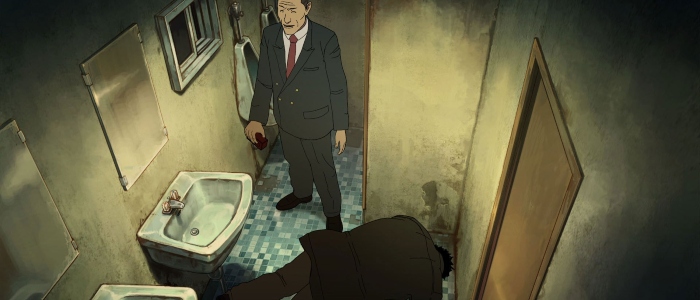
The Fake (2013)
A small village is marked for destruction when plans for a new dam mean the whole area will be flooded with water, but community panic is kept in check by the village’s spiritual leader, Choi Gyeong-seok. He can save their lives and their souls, but he’s going to need all of the savings and resettlement payments to make it happen. Only one man knows that Choi is a scammer, but the obnoxious and abusive Kim Min-chul isn’t exactly high on people’s list of respectable citizens.
Religious charlatans are commonplace around the globe, from the smallest villages to the most powerful nation on Earth, and they always make for worthwhile targets of criticism and scorn. The one at the center of The Fake is no different, and the film does an impressive job conveying the man’s vileness. Making the protagonist equally unappealing for wholly different reasons is a risky move, but it’s part of what makes this animated film stand apart from most as it delves into complicated characters with biting precision.
Writer/director Yeon Sang-ho shot to genre fame with the release of his first live-action film, Train to Busan (2016), but he made three animated features before then including The King of Pigs (2011) and 2016’s Seoul Station which is a prequel to Train to Busan. The Fake offers no real genre thrills and instead delivers a powerful and compelling condemnation of man’s inhumanity to man in the form of organized religion. The animation is both brutal and attractive, and like his 2011 effort’s vicious exploration of high school bullying it brings these people and ideas to life every bit as vivid as what live-action can do.
The Fake is currently available on Blu-ray/DVD.
Check out more of the Best Movies You’ve Never Seen!
The post The Best South Korean Films You’ve Never Seen appeared first on /Film.
